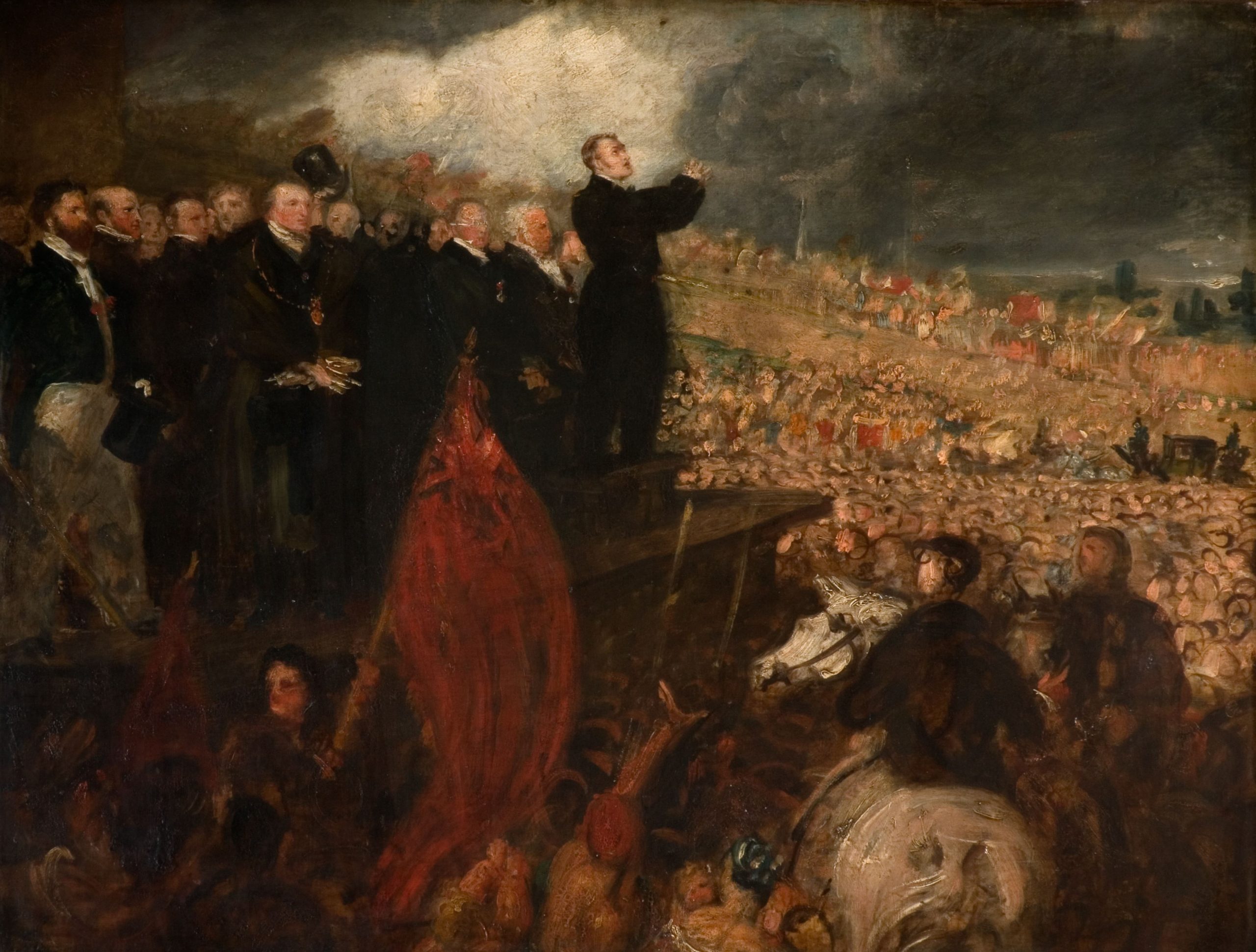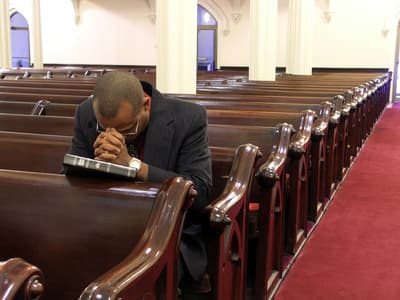What Are the 95 Theses of The Reformation?

What Are the Ninety-Five Theses of The Reformation?
Reformation Day is just around the corner (October 30th)! In light of that, my goal with this article is to explore what sparked the Reformation and what we can learn of Martin Luther’s theology in his writing of the “95 Theses”.
This document is often believed to be a long list of grievances Luther had against the Catholic Church – and that is correct. However, the Theses had a much narrower focus than is commonly thought.
What was this document, why did Luther write it, and what can we learn from it today?
What Was Luther Thinking?
In the 16th century, the language of theologians and professors was limited to Latin. This was the language in which they would discuss political and theological issues as well as lecture students. Because of this, it was no surprise to the people that Luther wrote the 95 Theses in Latin.
By nailing this document to the Wittenberg Church doors (which functioned as a bulletin board), he was asking the theologians and professors to discuss the issues outlined in his document. It was never his intention for these issues to get into the hands of the common people. He simply wanted to discuss and debate with those who had authority.
What Is It?
Luther’s 95 Theses were a detailed pushback against the sale of indulgences and the doctrine of the Treasury of Merit – both of which were purported by the Catholic Church.
The thought behind the sale of indulgences is that an individual could give money to the Church and receive a certificate in return that lessened the amount of time a dead relative had to stay in Purgatory for the purging of their sins.
The Treasury of Merit doctrine taught that merit (righteousness) is stored up in heaven by the good works of the saints (example Christ, Mary, Peter, Paul, Mother Teresa, etc.). Those merits could be transferred to an individual to assist them in getting out of purgatory and into heaven.
Luther’s main argument against both teachings was that it lessened the Cross of its power and emptied the gospel of necessity. Furthermore, it deceived a non-believer into thinking he had peace with God (based on his works) when, in fact, there was no peace.
Key Statements
There are four statements in the 95 Theses I want to point out and discuss further. They are key in understanding Luther’s theology and why this document sparked the Reformation.
Statement #28: It is certain that when money clinks in the money chest, greed and avarice can be increased; but when the church intercedes, the result is in the hands of God alone.
Luther points out the danger of money (Matthew 6:24). There is always the possibility for greed and avarice (extreme greed). The love of money can rot a man’s heart to love the things of this world rather than the things of God.
But, Luther says, when the church intercedes for the salvation of unbelievers, the results are left to God to do his work. Is money more powerful than God? Is God driven by financial gain? The answer is a resounding “No!” God is a much better advocate for our salvation than money will ever be.
God alone has authority over his church and over salvation – not the pope.
#36: Any truly repentant Christian has a right to full remission of penalty and guilt, even without indulgence letters.
The Five Solas of the Reformation sing loud and clear in this one statement. We are saved by grace alone through faith alone in Christ alone for the glory of God alone. We need no other advocate or piece of paper to inform us of our salvation and provide security. Christ is sufficient. It is through his work alone that we are saved.
Paul writes in his letter to the Galatians, “This is the only thing I want to find out from you: did you receive the Spirit by the works of the Law, or by hearing with faith? Are you so foolish? Having begun by the Spirit, are you now being perfected by the flesh?” (Galatians 3:2-3).
This was Luther’s heart – that the church continue in faith in Christ and not attempt to be perfected by works. Perfection is found in Christ alone.
#62: The true treasure of the church is the most holy gospel of the glory and grace of God.
This statement speaks for itself. Luther had a deep understanding that the church’s treasure was the gospel and being rooted in the glory and grace of God – not of works. Anything added to salvation was an affront and offense to the Cross of Christ.
Luther understood that, as important as the sacraments were, they did not take place over the Cross of Christ and preaching the message of the Gospel. Christ did not die so that the priests could perform sacraments in attempt to get closer to God. Christ says he is the door (John 10:7). The church is a pillar and buttress of the truth (1 Timothy 3:15) – the truth of the gospel. Anything in addition to that lessens the gospel message.
#94-95: Christians should be exhorted to be diligent in following Christ, their Head, through penalties, death and hell. And thus be confident of entering into heaven through many tribulations rather than through the false security of peace (Acts 14:22).
Luther’s concluding statement was that the selling and purchasing of indulgences provided false assurance. Luther’s heart for true believers was that they be confident in entering heaven. Are indulgences stronger than the death of Christ to redeem his people and transfer them to heaven immediately (without the need for purging of sins in purgatory)? How shallow is God’s grace that it necessitates the sale of indulgences? What kind of a Savior was Christ who could not save His people to the uttermost (Hebrews 7:25)?
Finally, Luther warned against false assurance given to unbelievers about the security of their souls. There is a real danger in unbelievers having false assurance by living moral lives while being unregenerate.
So What?
What is the “So What?” of the Reformation and (more specifically) Luther’s 95 Theses? What can we as modern evangelical protestants learn from Luther in this document?
1. What we believe about the gospel matters.
2. No human has authority to add to or subtract from the gospel of Christ.
3. God is sovereign over salvation and is able to completely save those who believe.
4. There is still a need for sound biblical theology in the church today.
Let’s praise God for the gift of Luther and his theological brilliance in writing the 95 Theses. It continues to be a gift to the evangelical church. We benefit from this document in ways many will never understand, not just because of its relation to the Reformation, but because of the theology it promotes – not adding to the gospel of Christ and resting in his finished work on our behalf.
Soli Deo Gloria.
Brittany Proffitt lives in Dallas, TX, holds a BA in Religion, and is a student at Southwestern Baptist Theological Seminary.




